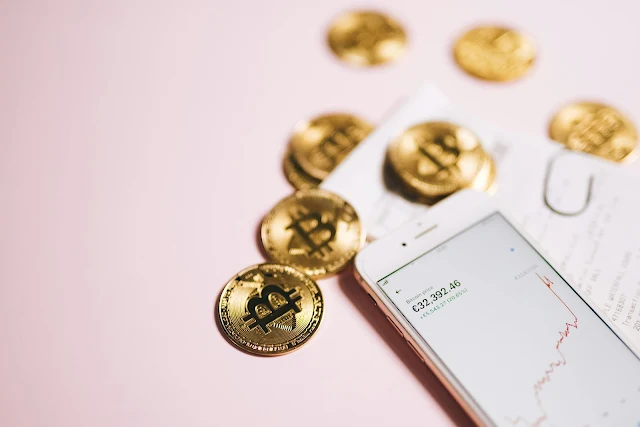Introduction
Bitcoin has taken the world by storm since its inception, revolutionizing the way we think about money and financial transactions. But what exactly is Bitcoin, and how did it come to be? Understanding the history of Bitcoin is crucial to grasping its significance and potential future. Let's dive into the world of Bitcoin and explore its origins, workings, and impact.
What is Bitcoin?
Bitcoin is a digital currency, often referred to as cryptocurrency, that operates on a decentralized network. Unlike traditional currencies issued by governments, Bitcoin is not controlled by any single entity. This independence is one of its most defining features, setting it apart from conventional money.
The Beginning: How Did Bitcoin Start?
Bitcoin's journey began with the publication of a white paper by an anonymous person or group of people using the pseudonym Satoshi Nakamoto. Titled "Bitcoin: A Peer-to-Peer Electronic Cash System," the paper outlined the principles of a new kind of digital currency. The first Bitcoin transaction took place on January 12, 2009, marking the start of the cryptocurrency era.
Bitcoin Mining
Mining is the process through which new Bitcoins are created and transactions are verified. Miners use powerful computers to solve complex mathematical problems, and in return, they are rewarded with newly minted Bitcoins. This process is fundamental to maintaining the integrity and security of the Bitcoin network.
The Technology Behind Bitcoin: Blockchain
At the heart of Bitcoin is blockchain technology. A blockchain is a public ledger that records all Bitcoin transactions. It is decentralized, meaning that no single entity controls it. Each block in the chain contains a number of transactions, and once a block is completed, it is added to the chain, creating a permanent record.
Advantages of Bitcoin
Bitcoin offers several advantages over traditional currencies:
- Decentralization: No single entity controls Bitcoin, making it resistant to censorship and interference.
- Security: Bitcoin transactions are secure and irreversible, thanks to the blockchain.
- Privacy: Users can transact without revealing their identities, offering a level of privacy not found in traditional banking.
Challenges Facing Bitcoin
Despite its advantages, Bitcoin faces several challenges:
- Global Acceptance: While Bitcoin is gaining traction, it is not yet universally accepted.
- Legal Regulations: Governments around the world are still figuring out how to regulate Bitcoin, leading to a patchwork of laws and rules.
How Bitcoin Works
To use Bitcoin, you need a digital wallet. This wallet allows you to send and receive Bitcoins. Transactions are recorded on the blockchain, ensuring transparency and security. When you send Bitcoin, it goes from your wallet to the recipient's wallet, and the transaction is verified by miners before being added to the blockchain.
Uses of Bitcoin in Everyday Life
Bitcoin can be used in various ways:
- Paying with Bitcoin: More and more businesses are accepting Bitcoin as a form of payment, from online retailers to brick-and-mortar stores.
- Bitcoin as an Investment: Many people buy Bitcoin as an investment, hoping its value will increase over time.
The Evolution of Bitcoin
Bitcoin's journey from a niche digital currency to a global phenomenon has been marked by several key milestones. Early adopters were mostly tech enthusiasts, but as Bitcoin gained popularity, it attracted a broader audience, including investors and businesses.
Bitcoin in the Media
Media coverage has played a significant role in shaping public perception of Bitcoin. From headlines about its meteoric rise in value to stories about its use in illegal activities, Bitcoin has rarely been out of the news. This coverage has contributed to both its popularity and controversy.
Economic Impact of Bitcoin
Bitcoin's influence extends beyond individual users and investors. It has the potential to disrupt traditional banking and financial systems. By offering an alternative to government-issued currencies, Bitcoin challenges the status quo and introduces new possibilities for global finance.
Future of Bitcoin
The future of Bitcoin is a topic of much speculation. Some experts believe it will become a mainstream form of payment, while others think its primary use will remain as a store of value. Regardless of its future, Bitcoin has already left an indelible mark on the world.
Bitcoin Alternatives
Bitcoin was the first cryptocurrency, but it is not the only one. There are thousands of alternative cryptocurrencies, or altcoins, each with its unique features and purposes. Comparing Bitcoin to these altcoins helps to understand its strengths and limitations.
Conclusion
Bitcoin has revolutionized the concept of money, offering a decentralized and secure alternative to traditional currencies. Understanding its history, how it works, and its potential future is essential for anyone interested in the world of cryptocurrencies.
FAQs
What is Bitcoin? Bitcoin is a decentralized digital currency that allows for peer-to-peer transactions without the need for a central authority.
How does Bitcoin mining work? Bitcoin mining involves using powerful computers to solve complex mathematical problems, which verify transactions and create new Bitcoins.
Is Bitcoin secure? Yes, Bitcoin transactions are secured by cryptographic technology and recorded on a public ledger called the blockchain.
Can I use Bitcoin to buy everyday items? Yes, an increasing number of businesses accept Bitcoin as a form of payment for goods and services.
What are the risks of investing in Bitcoin? Bitcoin is highly volatile, and its value can fluctuate dramatically. Additionally, regulatory changes and security risks are potential concerns for investors.
KEYWORDS: "How to make money blogging","Make money blogging","Making money blogging"






Comments
Post a Comment